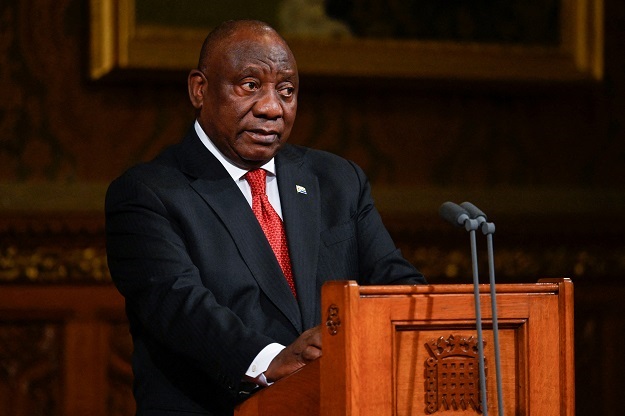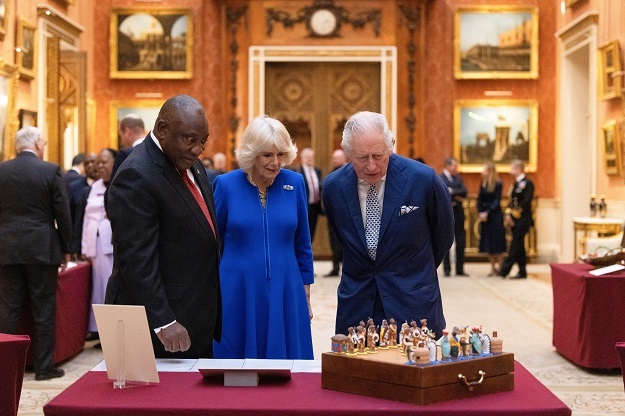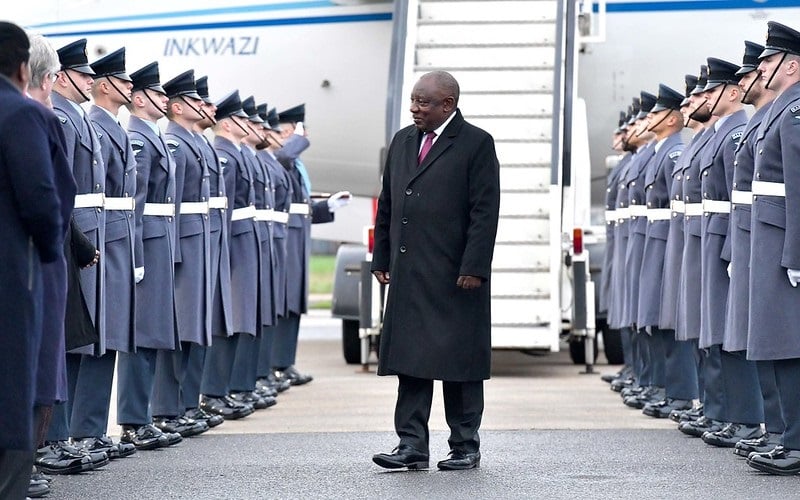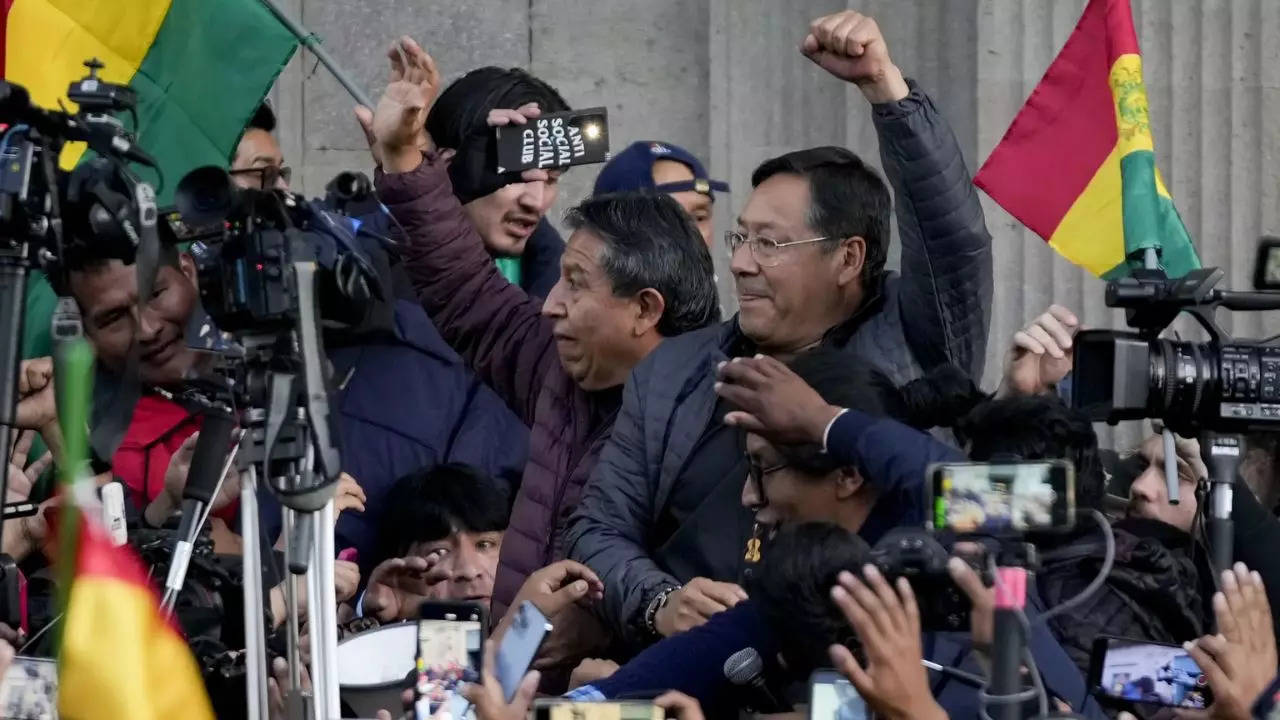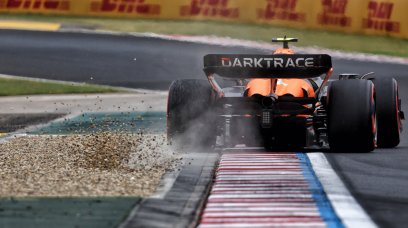President Cyril Ramaphosa delivered a speech during his state visit to Great Britain. His speech focused on SA’s trade partnership with the UK, as well as climate issues.
It is a great honor for me to address this enormous gathering on behalf of the Government and people of South Africa.
Relations between our countries are long-standing and strong.
There are many manifestations of our relationship.
If you’ve ever visited our Parliament in Cape Town, you may have seen the statue of Queen Victoria, the revered ancestor of His Majesty King Charles III, in the garden.
And not far from the place where we gathered today, on the other side of Parliament Square, stands the statue of Nelson Mandela, the father of our nation.
The presence of statues of these two remarkable historical figures in the manors of our respective democracies makes a strong statement.
This strongly affirms the duration, importance and complexity of the relationship between our peoples.
These statues are part of a history of relationships based on colonialism and conflict, dispossession and degradation.
However, these statues are also part of the story of redemption.
This is a story of relationship transformation; a relationship of solidarity and compassion, a shared desire for equality, human rights and the realization of everyone’s potential.
Over the past three decades, it has been a story of trade, investment, tourism, sports, education, art, science and innovation.
We therefore see this visit as an opportunity to celebrate our current relationship as equal partners working together for the prosperity and security of our people.
We are grateful that the principles represented and protected in these hallowed halls – democracy, freedom, humanity and equality – are now at the heart of our strong and dynamic bilateral relationship.
These principles not only guide our interactions with each other.
READ | Jacob Zuma must go back to prison and prison bosses must make a ‘lawful’ decision to release him – appeal court
These principles also inform our shared views on the challenges facing humanity and the opportunities for progress and development.
Today, our world is beset by conflict and instability, poverty and inequality.
We face the existential threat of a planet that is heating up far faster than it can handle.
Collective action within relevant global governance systems is now more important than ever before.
A strong partnership between South Africa and the United Kingdom can make a significant contribution to multilateralism and building consensus on critical global issues.
It is vital that we reform the international institutions on which we rely in times of crisis and need.
We hope that the United Kingdom will raise its voice in favor of more representative and more inclusive international bodies, including the UN Security Council and global financial institutions.
These bodies need to be better equipped to respond to the needs of developing economies.
Our membership of the Commonwealth gives us a body that can play an important role in developing relevant and innovative responses.
my lords
dear sir,
The Covid-19 pandemic has exposed many fractures in the world order.
It revealed huge disparities in wealth, power, technology and health care options.
It demonstrated both the possibilities and limitations of institutions of global governance, finance and development.
So as we work to recover from the pandemic, it is critical to tackle inequality within and between countries.
Unless we act urgently and purposefully to close the gap between the rich and the poor, hardship and suffering will only deepen.
Instability, conflict and terror will increase.
We need to close gaps in access to education, health care, safe water, sustainable energy and economic opportunity if we hope to end poverty that is passed from one generation to the next.
Nowhere is the need to tackle inequality more important than in our response to climate change.
Those countries that bear the least responsibility for global warming are the most vulnerable to its effects.
They do not have the resources needed to adapt to drought, floods and sea level rise.
As members of this parliament, you have been important and active participants in the development of relations between our countries. You have been supportive and supportive.https://t.co/oiItGHOzT0
— Cyril Ramaphosa ???? (@CyrilRamaphosa) November 22, 2022
And as they seek to grow, industrialize and diversify their economies, their energy needs will increase and the space to reduce emissions will shrink.
This places an obligation on industrialized countries to commit significant resources to low- and middle-income countries to finance their climate action. This is not charity.
It is compensation for the damage done – and the damage yet to be done – to people in developing countries as a result of the industrialization of rich countries.
And because global emissions reduction benefits all countries and all people, it is also a necessary investment in humanity’s future.
We appreciate the UK’s commitment to a just energy transition in South Africa.
This demonstrates the UK Government’s clear recognition of the importance of supporting the transition to a low carbon economy in a way that does not harm affected workers, communities or industries.
We have called on the UK and other partners to ensure that a significant part of the funding takes the form of grants and highly concessional loans.
We are pleased that the final outcome of COP27 promises concerted action on climate change.
WATCH | SA will assist NASA in missions to the Moon and beyond with a ground station at Karru
It was President Nelson Mandela who espoused the vision of a global community of nations seeking to improve the lot of people by all available means.
Given our history, given our shared values, given the strength of our relationship, I strongly believe that South Africa and the United Kingdom must work together to realize such a global community.
Three decades ago, the British people united with the people of South Africa – and millions of others around the world – to free Mandela and end apartheid.
Now let us renew the moral purpose of the global anti-apartheid struggle to confront the discrimination, inequality and injustice that divide humanity and stifle progress for all.
my lords
dear sir,
This state visit is an opportunity to intensify trade, commerce and investment ties between our countries.
The United Kingdom is the largest foreign investor in South Africa and the country’s fifth largest export destination.
Over the past two decades, the United Kingdom has been South Africa’s largest source of tourists from outside Africa.
There are few countries that have such in-depth experience and knowledge of the South African economy than the UK.
British companies need to use this advantage more effectively to seek investment and trade opportunities in our country.
Cooperation in science and innovation between the two countries is significant and has rich potential for further expansion.
Since 2015, the UK has invested more than 350 million rand in the Newton Fund partnership with South Africa, with a South African investment of 100 million rand in return.
The Newton Foundation’s activities include a program to train a new generation of radio astronomers in sub-Saharan Africa, marine food security in the Indian Ocean, biomedical research and innovation, and support for entrepreneurs in the informal economy.
To study
More than 800 South Africans have benefited from the Chevening Scholarship Program and more than 130 South African candidates are currently studying in the United Kingdom.
We are convinced that there are great opportunities for expanding these areas of cooperation.
As we strive to rebuild our economy after the pandemic and the era of state capture, we are breaking new ground for growth and production by working to create employment and economic opportunities for the 11 million South Africans who have lost their jobs.
We are undertaking far-reaching economic reforms to make our economy more competitive and more efficient, lower the costs of doing business and encourage new entrants into a range of industries.
As we undertake the most significant restructuring of our energy market in almost a century to address severe electricity shortages, there are great opportunities for investment, innovation and partnership.
By pursuing these and other avenues of collaboration, I believe we will redefine the relationship between South Africa and the UK in new and exciting ways.
By fully exploring our common interests and opportunities, I am confident that we will add another chapter to our long and rich history.
As members of this parliament, you have been important and active participants in the development of relations between our countries.
You provided support and encouragement.
You have been there for us in the most difficult times and celebrated our achievements.
We thank you for your friendship, solidarity and partnership.
Be assured of the sincere and lasting friendship of South Africa and its people.
I thank you.

